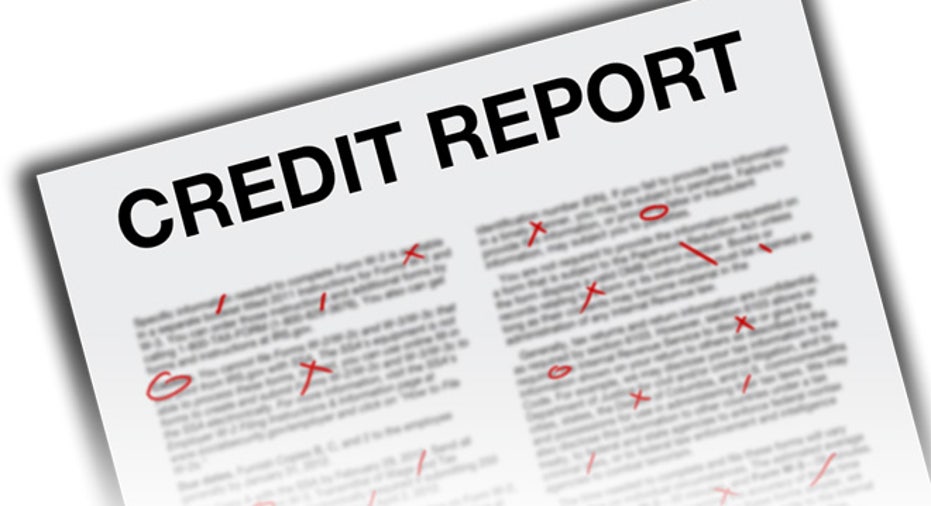5 Everyday Things That Hurt Your Credit

Here’s one of the tricky things about credit scores: They’re about more than credit. Sure, it’s extremely important to make loan payments on time and use credit cards responsibly, but there are plenty of non-credit things that can do serious damage to your scores, potentially making it more difficult to get loans at an affordable rate in the future.
Your credit score may not be top of mind while you’re driving to work or browsing the Internet, but if you’re not careful, you could jeopardize your financial future when you least expect it’s at risk.
1. A Ticket
You know that sinking feeling you get when you see a police car’s lights turn on in your rearview mirror or you approach your car after dinner and see a piece of paper under the windshield wiper? Yep, you’re getting a ticket, which means at least a fine, if not something worse.
Spare yourself further stress by taking action immediately. Either pay the fine or start the process of contesting the charge, because letting the ticket sit unpaid could come back in a seriously unpleasant way: The fine might be sent to a debt collector, which results in a collection account on your credit report. That will hurt your credit score for a long time, which will likely end up costing you more than it would to pay the ticket in the first place. The same goes for unpaid late fees for library books and rental movies, though these days the latter are a lot less common than traffic violations.
2. Unpaid Tolls
With electronic tolling, it’s so easy to breeze past the toll booth without paying. Whether or not you do it on purpose (and plenty of people do), there’s likely an online option for paying missed tolls, which you should immediately use. You’ll be billed for unpaid tolls at the address your car is registered, and if you don’t pay that or somehow miss the notice, you’ll probably end up seeing it on your credit report as a collection account.
For something that costs a few cents or dollars, it’s absurd to let missed tolls hurt your credit score.
3. Your Credit Cards
It’s sometimes hard to remember this, but when you pull out your credit card to pay for dinner, you’re making a decision that affects your future: If that transaction drives up your balance enough, it could hurt your credit utilization rate. Should you fail to pay that credit card bill later on, your credit score will take a serious hit.
It may seem trivial at the time, but when you’re trying to buy a home or take out an auto loan, you’ll want to apply with the highest credit score you can.
4. Your Pet
Pets are adorably unpredictable — and that can be ridiculously expensive. Sometimes they cause costly damage, which can put you in debt to repair (or your landlord could send you to collections for unpaid damages), and their healthcare can be quite pricey, as well. Surgeries for animals often cost thousands of dollars, and if you’re not prepared for such emergencies, you’re probably looking at some debt or credit problems as a result.
5. The Wrong Email
Hacking can lead to identity theft, which can lead to credit issues. It can be as simple as clicking the wrong link in an email or downloading an inconspicuous attachment: If an ill-intentioned intruder has access to the information in your email, he might be able to steal your identity, which someone can use to open credit cards, take out loans, start utilities — anything — using your name. It sometimes takes years to recover from the damage identity thieves cause, so even though we check email dozens of times a day, you need to remain security-minded when you use it.
You may not even know some of these everyday things are hurting your credit if you haven’t been checking your credit reports. Which is why it’s a good idea to make it a habit to check your credit reports at least once a year — you can get your free annual credit reports from each of the major credit reporting agencies. And if you really want to keep an eye on your credit, you can get your credit scores on a regular basis, and any large, unexpected change is a big clue to a potential big problem on your credit reports. Credit.com gives you two of your credit scores for free, updated every month, along with an overview of what factors are influencing your scores.
More From Credit.com
What's a Bad Credit Score?What's the Easiest Way to Improve Your Credit?Does Checking My Credit Score Hurt My Credit?
Christine DiGangi covers personal finance for Credit.com. Previously, she managed communications for the Society of Professional Journalists, served as a copy editor of The New York Times News Service and worked as a reporter for the Oregonian and the News & Record. More by Christine DiGangi



















